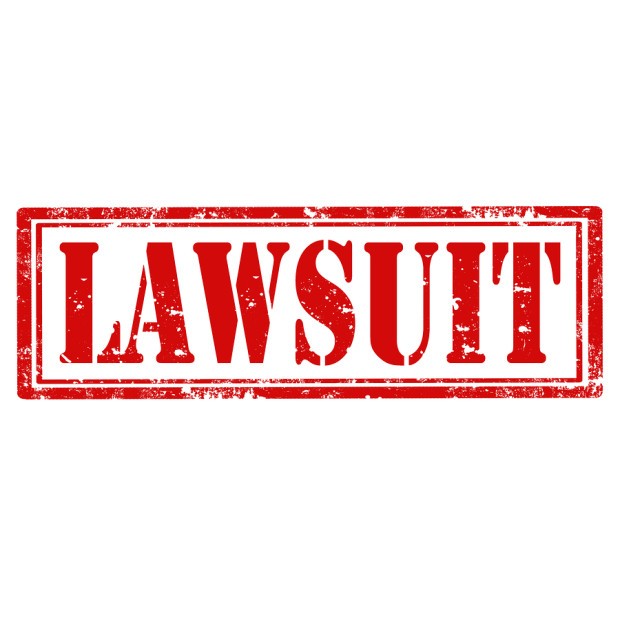The most-popular vehicle in the U.S. — the F-Series truck — is among the many Ford Motor Co. products using stolen technologies to run its newest fuel-efficient engines, according to three Massachusetts Institute of Technology professors who say they invented the enhancements.
With Ford selling two trucks every minute and generating about $42 billion in revenue last year from the F-Series alone, the MIT inventors are demanding an unspecified share of the proceeds. In a lawsuit filed Jan. 30, they say their patented dual port- and direct-injection technology were added to the company’s EcoBoost engines in recent years without permission.
The dispute marks a split in the long collaboration between MIT and Ford, which created a joint energy-research program in 2007 to focus on powertrain, fuel and energy technologies. A separate MIT Energy Initiative paired Ford personnel with university researchers. Chairman Bill Ford, great-grandson of the automaker’s founder Henry Ford, received a masters degree from the MIT Sloan School of Management in 1984.
But by 2015, the company suggested the professors were “greedy inventors” and refused offers to negotiate exclusive rights to license the patents, the lawsuit alleges.
Ford sells “a lot of vehicles, most with EcoBoost,” said Kevin Tynan, senior automotive analyst for Bloomberg Intelligence in Princeton, New Jersey, who estimates the company has sold about 8 million light trucks alone since 2015. It’s too soon to know how costly any royalties would be for the company, he said. “At $1 per vehicle, no big deal. At $1,000, $8 billion hurts a little.”
Spokespersons for Ford and MIT declined to comment on the case.
EcoBoost engines have been a key part of Ford’s strategy to develop cars and trucks with better fuel efficiency and power with fewer emissions, and they’ve been installed in millions of new vehicles over much of the past decade.
MIT professors Leslie Bromberg, Daniel R. Cohn and John B. Heywood, who have been working for decades on improvements to internal-combustion engines, say they invented dual-injection technologies that allow for better fuel-and-air mixing and combustion stability than direct injection, with less engine knock.
“Revolutionary throughout the industry,” is how MIT describes the technologies, which have been cited by more than 115 other patents, including dozens by Ford, according to the lawsuit filed in federal court in Wilmington, Delaware.
The professors transferred ownership of their creations to MIT, one of the premier U.S. research universities, which then granted exclusive patent-licensing rights to a small company the three men founded, Ethanol Boosting Systems LLC. EBS offered to license patents on the enhancements to Ford in 2014, but the company declined.
Since then, the technologies have become integrated into new EcoBoost engines Ford is promoting in recent models, including F-150 trucks, Lincoln Navigator sport-utility vehicles and Ford Mustang sports cars, according to the plaintiffs.
Heywood, who was director of the Sloan Automotive Laboratory at MIT and wrote the 1988 textbook “Internal Combustion Engine Fundamentals,” emailed two Ford executives in October 2014 to discuss licensing the dual-injection technology, according to the complaint. Heywood cited MIT’s history with Ford and wrote that EBS “would like to give Ford the first opportunity” to license a portfolio of five patents, one of which is named in the lawsuit.
After a volley of emails, Bill Coughlin, then Ford’s chief intellectual-property officer, agreed to meet at MIT in April 2015. According to the complaint, Coughlin proposed that “in exchange for EBS agreeing not to assert the patents against Ford,” the auto giant “would work with EBS to market other MIT/EBS technology.” At one point in the conversation, Coughlin asked the three professors “whether they were ‘greedy inventors,'” the complaint says.
No Interest
EBS invited Ford to analyze the patents and identify any that weren’t applicable to its products, but that never happened, the plaintiffs allege. After more rounds of emails and phone calls, including with Greg Brown, then the counsel for global engine intellectual property at Ford Global Technologies LLC, the carmaker told EBS in November 2015 that it wasn’t interested in licensing the patents.
Asked whether Ford might be interested in the technology for future vehicles, Brown, according to the complaint, “indicated that Ford had no plans that he knew of to use that technology in its vehicles.”
But Ford “did have imminent plans” to use the technology, and “already was incorporating that technology into its engines and fuel-management systems,” MIT and EBS said in the lawsuit. The complaint cites a June 2017 press release in which Ford said it was using dual port- and direct-injection technology in its 3.5-liter EcoBoost engines and other engines that are available in the F-150, Expedition and other models.
The majority of Ford trucks, and 60 percent of F-150s, have EcoBoost engines, Hau Thai-Tang, Ford’s executive vice president of product development and purchasing, said Jan. 15 at the Wolfe Research Global Auto Industry Conference.
“We sold 1 million F-Series last year,” Thai-Tang said. “Our PR team did the math. We sell one every 29 seconds.”
The F-Series in 2018 “outsold the nearest competitor by the widest margin ever,” Chief Executive Officer Jim Hackett said Jan. 23 in an earnings call.
The case is Ethanol Boosting Systems LLC v. Ford Motor Co., 19-cv-196, U.S. District Court, Delaware (Wilmington)





















 Large Scale Cargo Ring Busted in LA, $5M Recovered
Large Scale Cargo Ring Busted in LA, $5M Recovered  State Farm Inked $1.5B Underwriting Profit for 2025; HO Loss Persists
State Farm Inked $1.5B Underwriting Profit for 2025; HO Loss Persists  Premium Slowdown, Inflation Factors to Lead to Higher P/C Combined Ratio: AM Best
Premium Slowdown, Inflation Factors to Lead to Higher P/C Combined Ratio: AM Best  Focus on Ski Guides After Deadly California Avalanche Could Lead to Criminal Charges, Civil Suits
Focus on Ski Guides After Deadly California Avalanche Could Lead to Criminal Charges, Civil Suits 









